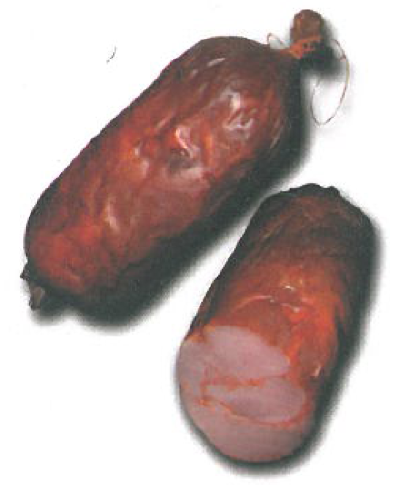Description: Paio de Beja PGI is a smoked sausage made with the meat and fat of the Alentejana PDO breed of pig. Cuts from the leg, shoulder and loin are used for this sausage. 70% - 90% lean meat is used and 10% - 30% fat.
Production method: The pork meat and fat are cut mechanically into pieces and mixed with water, garlic, paprika and salt. The resulting mixture is left to marinate for two days before it is stuffed into natural sausage skins. The sausages are then smoked over oak wood fires for between 3 and 12 days.
Distinctive features: The particular flavour of Paio de Beja PGI is owed to the oak tree and its acorns. The wood of the oak is used for the smoking process while the acorns are the principal feed for the Alentejana PDO breed of pig which is used in its production.
Production area: Paio de Beja PGI is only made in the municipal area of Beja, in the Beja district.
History: The history of Paio de Beja PGI is closely linked to the reliance on pork for nourishment in the Alentejo region, as proved by the megalithic remains in the area relating to pig keeping, which date back to the Bronze Age. This continued under the Romans who also discovered the benefit of acorns as the principal feed for the pigs. In spite of being banned in the Koran, the Arab domination of Alentejo did not affect the consumption of pork. With the first explorations to the east and the opening up of the spice route, the consumption of pork increased even more because of the addition of the newly discovered spices.
Product specification (pdf)
Publication in EU official journal
Regulamento (CE) n.º 510/2006 do Conselho de 1.6.2006 - C 128/18
Regulamento (CE) n.º 148/2007 da Comissão de 15.02.2007 - L 46/14
Publication in the Portuguese official journal
Despacho n.º 14384/2001 de 10.07.2001



